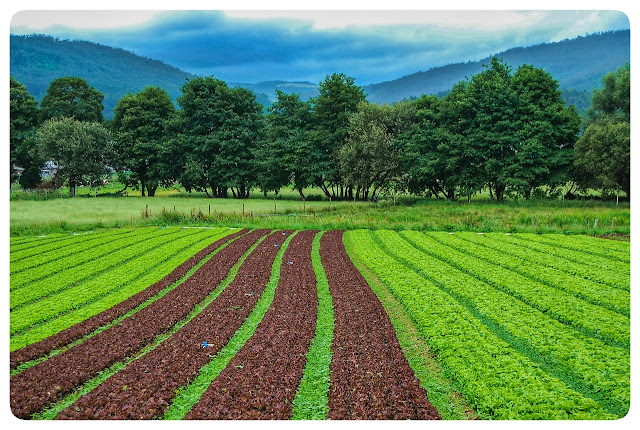In the heart of the japanese Himalayas, Sikkim stands as a testament to the transformative power of sustainable agriculture, having earned the difference of being the world's first completely organic state. The tale of Sikkim's organic triumph isn't always just a story of agricultural innovation but a holistic dedication to environmental stewardship, network nicely-being, and a vision for a sustainable destiny.
I. Recognition of Agricultural Pitfalls :
The natural odyssey of Sikkim started out with a popularity of the pitfalls of conventional farming practices. The country government, led via visionary policymakers, acknowledged the damaging outcomes of synthetic chemical compounds at the environment, soil health, and public properly-being. This acknowledgment marked the primary important step towards a paradigm shift in Sikkim's approach to agriculture.
II. Environmental Stewardship at the Core :
Sikkim, with its pristine landscapes and rich biodiversity, understood the importance of keeping its natural treasures. The selection to transition to natural farming changed into rooted in a commitment to environmental stewardship. The country aimed not best to maintain agriculture but to nurture the sensitive balance of its ecosystems, recognizing that a wholesome surroundings is vital to the prosperity of both agriculture and society.
III. Soil Health Restoration :
One of the primary concerns addressed via Sikkim's natural initiative became the deteriorating health of its soils. The vast use of synthetic insecticides and fertilizers had taken a toll at the fertility and shape of the land. Transitioning to organic farming was, therefore, a strategic move to restore soil fitness. Organic practices, including the usage of natural fertilizers and crop rotation, aimed to rejuvenate the as soon as-depleted soils, making sure sustainable agricultural productiveness.
IV. Public Health and Food Safety :
The residues of agrochemicals in conventional produce had raised extreme public health issues. Sikkim diagnosed that the meals grown the usage of synthetic inputs posed dangers to the nicely-being of its citizens. By embracing natural farming, the kingdom now not simplest prioritized the production of healthier, chemical-free crops however also ensured food protection, contributing to the overall health and nutrition of its humans.
V. Implementation of Organic Policies :
Sikkim's commitment materialized via a chain of nicely-crafted policies and strategic implementation. The state government supplied important help to farmers thru subsidies, education packages, and the establishment of stringent organic certification requirements. This comprehensive approach facilitated a smooth transition and ensured the fulfillment of the organic initiative.
VI. Community-Led Initiatives and Farmer Empowerment :
The success of Sikkim's organic transformation turned into deeply intertwined with the engagement and empowerment of its farming communities. Community-led tasks and cooperative farming models performed a pivotal position in fostering a sense of ownership and responsibility amongst farmers. The country actively involved its agricultural groups, turning the organic motion into a collaborative and collective undertaking.
VII. International Recognition and Collaboration :
Sikkim's success did now not cross ignored on the worldwide degree. The country received global recognition for its pioneering efforts in sustainable agriculture. Collaborations with worldwide agencies, participation in international boards, and expertise-sharing initiatives solidified Sikkim's position as a frontrunner in the international green revolution. The success story of Sikkim have become a source of inspiration for different regions looking for to include sustainable agricultural practices.
In conclusion, Sikkim's adventure to turning into the sector's first organic nation is a terrific story of vision, commitment, and network-pushed trade. By prioritizing environmental sustainability, soil fitness, and public nicely-being, Sikkim has not most effective converted its agricultural practices but has also set a precedent for the sector. As countries grapple with the challenges of modern-day agriculture, Sikkim's achievement serves as a beacon, guiding the way in the direction of a greener, more healthy, and extra sustainable destiny for all.









No comments:
Post a Comment